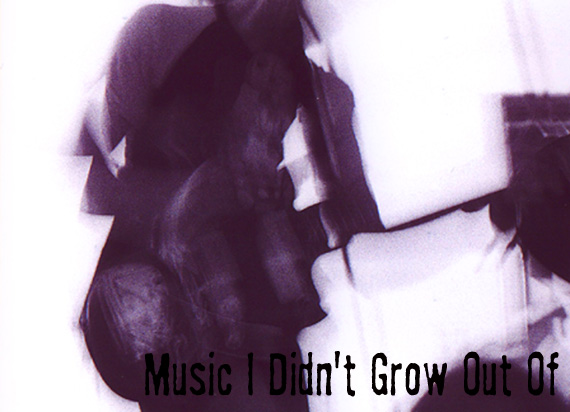Many may find it difficult to imagine Neville responsible for a genuine expression of feeling-- after such crimes against music as "Everybody Plays The Fool," Neville seems doomed to
 association with "soft rock," that form of music favoured by those who don't want to listen to anything moving, honest, or exciting, but prefer nonetheless not sit in silence. But that wasn't always the case; like a lot of musicians who defenestrated their talent and dignity during the 1980s, Neville's very early recordings are in many cases astonishingly good. In particular, Neville's earliest sides with New Orleans's famous Minit Records, which lasted only from 1961 to 1963 and released early records by Irma Thomas, Ernie K-Doe, and Eskew Reeder (aka Esquerita, strong influence on Little Richard), are all worth listening to. But chief among them is "How Could I Help But Love You?"
association with "soft rock," that form of music favoured by those who don't want to listen to anything moving, honest, or exciting, but prefer nonetheless not sit in silence. But that wasn't always the case; like a lot of musicians who defenestrated their talent and dignity during the 1980s, Neville's very early recordings are in many cases astonishingly good. In particular, Neville's earliest sides with New Orleans's famous Minit Records, which lasted only from 1961 to 1963 and released early records by Irma Thomas, Ernie K-Doe, and Eskew Reeder (aka Esquerita, strong influence on Little Richard), are all worth listening to. But chief among them is "How Could I Help But Love You?"Every time I've described this song, the first word that's come to mind has been "ghostly": this is a song with the rare power to draw gooseflesh just by the way it sounds. A large part of this is in the brilliance of the instrumentation and arrangement-- the song progresses slowly and begins with Neville's imploring voice behind an echoing cymbal, tapped snare-rim, and gently ringing guitar which follow an almost hidden bass. The initial effect is like a faint wind rustling the last fall-dry leaves on a tree-- you're just as ready for it to die out as pick up. But lord, how it picks up: the chorus hands the melodic counterpoint from the bass to a strong piano in classic NOLA R&B form and distant backup singers (eerie and virtually unidentifiable as male or female) swell in utterly stunning harmony to Neville's vocal trills, which contain not one whit of bullshit or showboating. No part of this song is any louder or more prominent than it absolutely has to be: humility permeates it above all. The second verse doubles in length to fit in a saxophone and trumpet solo as quiet as breath and as gentle as the guitar that ebbs the melody away. The song is never agitated beyond its careful rustle by any drum-beat except the rim of the snare-- even with the intensity of the chorus, the entire song is piano, bass, and voice alone, its power in its scarcity, and when the chorus ends it returns to the quiet simplicity of that shimmering guitar.
Neville was barely out of his teen years when he recorded "How Could I Help But Love You?" and the awkward earnestness of youth permeates and defines the song. But the song is dominated by this nervous hesitance in a way that other tracks of the same era which sought to capitalize on a young man's stammering declaration of love (such as more polished songs by Frankie Lymon and the Teenagers, Dion and the Belmonts, or the Orioles) are not. Quite simply, Neville sounds like he means what he's saying though he's terrified of saying it: he's full of the awe and reverence of falling truly in love at 20, and the song is arranged precisely so as to amplify every tremor of that emotion. When Neville sings, "You send cold chills down my spine," you don't just listen, you feel exactly what he means.
Performed by a different singer against a less deft arrangement, "How Could I Help But Love You?" might have been another hamhanded R&B throwaway, as there's nothing at the core of the words and melody to set the song apart from a dozen similar tracks. Yet between Neville's warm and tenuous voice and the perfect organization of instruments around it, this song becomes stunning. The lyrics are not, by any means, complex or witty, but they sound utterly sincere, and as a whole the song is likewise sincere in its minimalism. Where later Neville tracks would come to bury their lack of genuine emotion in an oily mountain of production, this song is structured to contain only what is absolutely necessary to get its point across. Its point is the feeling of being in love, and no song that I can think of does it better.
* - (to which I have the estimable Warren Hill, proprietor of Back Room Records and Pastries and publisher of $2.00 Comes With Mix-Tape zine, to thank for introducing me. Thanks, Warren.)



No comments:
Post a Comment